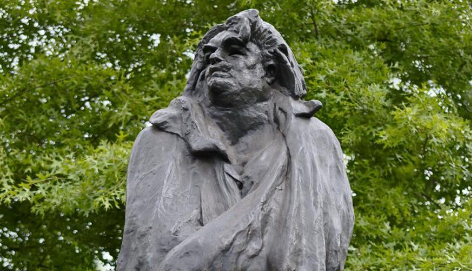Behind every great
fortune there is a crime
The Shadow of Wealth: Examining Balzac's Cynical Observation
Honoré de Balzac, the renowned French author, penned a
statement that continues to spark debate: "Behind every great fortune
there is a crime." This cynical observation digs into the murky relationship
between wealth and morality, suggesting that immense riches often come at a
hidden cost. While the truth of this statement is debatable, it serves as a
powerful lens through which we can examine the complexities of wealth creation.
On the surface, Balzac's quote appears to paint all wealthy
individuals with a broad brush, implying that their success is inherently tied
to illegal or unethical actions. History offers examples that seem to support
this view. The rise of robber barons in the late 19th century, who amassed vast
fortunes through ruthless business practices and exploitation, exemplifies the
potential for crime to pave the way for wealth. Similarly, corruption and fraud
can undeniably be paths to riches, leaving a trail of victims in their wake.
However, dismissing all great fortunes as ill-gotten gains
is an oversimplification. Innovation, hard work, and a shrewd understanding of
the market can lead to significant wealth accumulation. Entrepreneurs who take
calculated risks and build successful businesses contribute to society by
creating jobs and generating economic growth. Inheritance can also play a role,
with wealth being passed down through generations without any underlying crime.
The true power of Balzac's quote lies in its ability to prompt
a critical examination of the pursuit of wealth. It compels us to consider the
methods used to accumulate riches. Did the pursuit of profit come at the
expense of others? Were ethical boundaries crossed? Did ambition morph into
greed? By raising these questions, Balzac reminds us that the methods used to
acquire wealth are as important as the wealth itself.
Furthermore, Balzac's observation speaks to the societal
inequalities that can arise from vast wealth concentrations. When a small
number of individuals hold a disproportionate share of resources, it can create
a sense of injustice and resentment. This can lead to social unrest and a
breakdown of trust in institutions. Balzac's cynicism highlights the potential
for a system that allows for such vast wealth gaps to be inherently flawed.
In conclusion, Balzac's statement, while not universally
true, serves as a valuable reminder. The acquisition of wealth should not be a
free-for-all where ethical and legal lines are easily crossed. By striving for
a more balanced system that rewards innovation and hard work while ensuring
fairness and opportunity, we can work towards a society where great fortunes
are not necessarily synonymous with hidden crimes.

Comments
Post a Comment